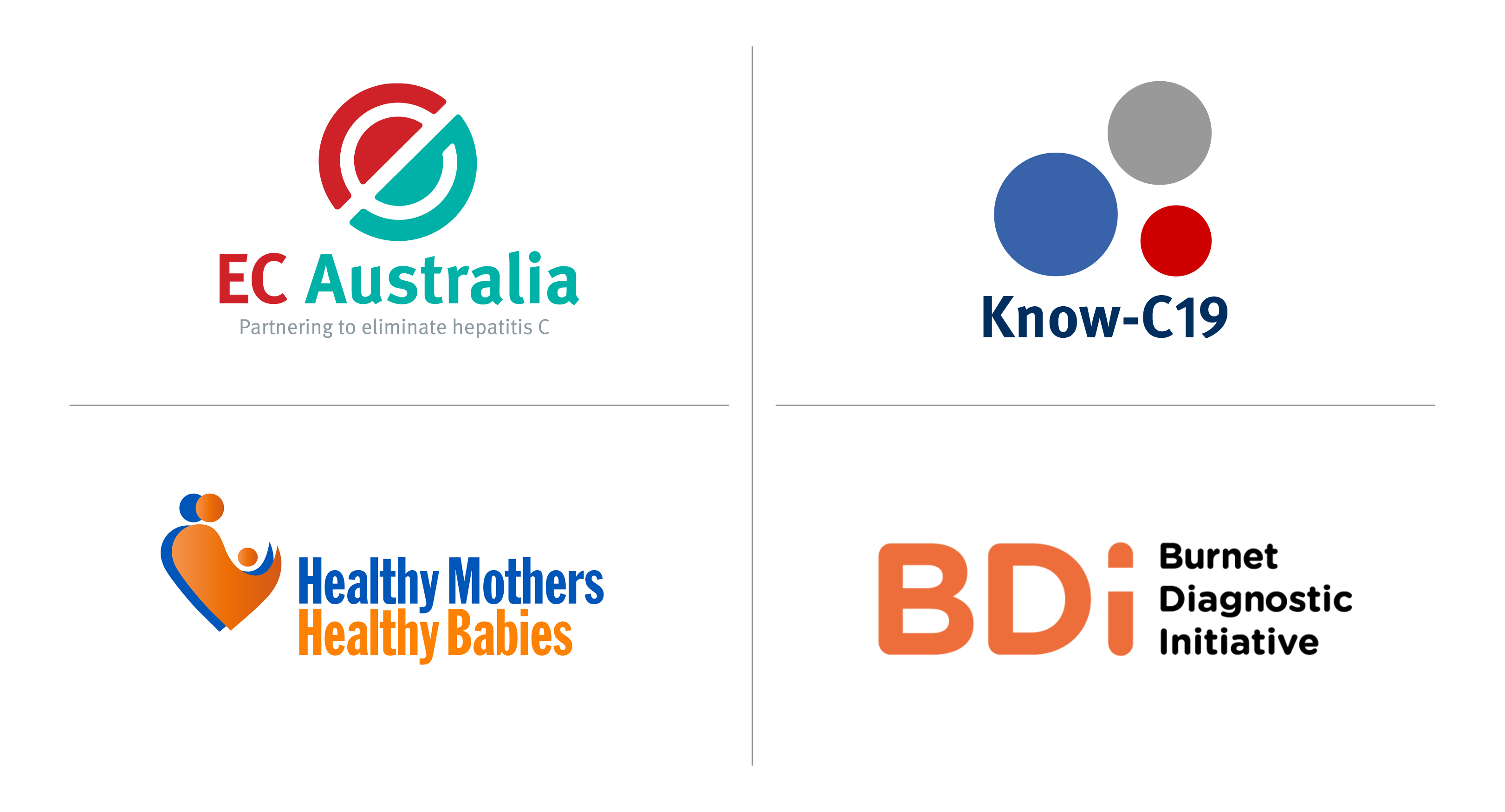Our people and structure
How our organisation is structured, and the people behind it.
Find a person
Executive Committee

Professor Brendan Crabb AC
Director and Chief Executive Officer

Professor James Beeson
Deputy Director, Research Strategy

Hilary Bolton
Chief Operating Officer

Professor Heidi Drummer
Deputy Director, Impact

Geoff Drenkhahn
Chief of Funding Growth

Professor Caroline Homer AO
Deputy Director, Gender Equity, Diversity and Inclusion

Chad Hughes
Deputy Director, International Operations

Leanne Lawrence
Chief of People, Planning and Governance

Di Lloyd
Chief of Public Affairs

Clinton Orr
General Counsel and Company Secretary

Monica Zhang
Chief Financial Officer (Interim)
Board of Directors

Mary Padbury
BA, LLB(Hons). Chair since 2019. Director since 2011.

Robin Bishop
LLB(Hon), BCom, BA. Director 2012-2021, 2022-present.

Professor Brendan Crabb AC
PhD, BSc. Director and Chief Executive Officer since 2008.

Robin Davies
BA(Hons). Director since 2023.

Professor Sandra Eades AO
PhD, FTSE, FASSA, FAHMS. Director since 2020.

Professor Helen Evans AO
BA, BSocAdmin. Director since 2015.

James Flintoft
LLB, BSc, MBA. Director since 2023.

Kate Galvin
LLB, BEcon, GAICD. Director since 2024.

Dr Andrew Nash
PhD. Director since 2025.

Dr Serge Scrofani
BSc(Hons), PhD, MBA, MAICD. Director since 2019.

Michael Ziegelaar
LLB(Hons), BEc, LLM. Director since 2015.
Independent Scientific Advisory Committee (iSAC)

Professor Alan Cowman AC
Chair
Independent Scientific Advisory Committee

Professor Brendan Crabb AC
Member
Independent Scientific Advisory Committee

Professor Nancy Baxter
Member
Independent Scientific Advisory Committee

Professor Sandra Eades AO
Member
Independent Scientific Advisory Committee

Adeeba Binti Kamarulzaman
Member
Independent Scientific Advisory Committee

Professor John Reeder
Member
Independent Scientific Advisory Committee

Dr Shivaprasad S Goudar
Member
Independent Scientific Advisory Committee
Country representatives

Dr Fredrick Charles
Country Director, Papua New Guinea

Dr Phone Myint Win
Country Representative, Myanmar

Kali Ameara
Country Representative, Vanuatu
Our core programs
Interdisciplinary health programs are at the heart of our daily decision-making. Our ‘core programs’ are:
- Disease Elimination
- Health Security and Pandemic Preparedness
- Women’s, Children’s and Adolescents’ Health.
Program directors and deputies
Disease Elimination

Professor Paul Dietze
Co-Program Director, Disease Elimination

Associate Professor Anna Hearps
Co-Program Director, Disease Elimination

Professor Joseph (Joe) Doyle
Deputy Program Director, Disease Elimination

Associate Professor Megan SC Lim
Deputy Program Director, Disease Elimination

Associate Professor Michelle Boyle
Deputy Program Director, Disease Elimination

Dr Caroline van Gemert
Deputy Program Director, Disease Elimination
Health Security and Pandemic Preparedness

Professor Leanne Robinson
Program Director, Health Security and Pandemic Preparedness

Associate Professor Suman Majumdar
Deputy Program Director, Health Security and Pandemic Preparedness
Women’s, Children’s and Adolescents’ Health

Dr Elissa Kennedy
Co-Program Director, Women’s, Children’s and Adolescents’ Health

Professor Joshua Vogel
Co-Program Director, Women’s, Children’s and Adolescents’ Health

Associate Professor Lindi Masson
Deputy Program Director, Women’s, Children’s and Adolescents’ Health
Our disciplines
Burnet has technically diverse experts across 3 key disciplines:
- Life Sciences
- Public Health
- International Development.
Some staff and students work directly with communities experiencing or at risk of health challenges. Many of our staff work in our laboratories or office environments in Australia and internationally.
Discipline heads and deputies

Professor Gilda Tachedjian
Head, Life Sciences

Associate Professor Paul Gilson
Deputy Head, Life Sciences

Professor Mark A Stoové
Head, Public Health

Associate Professor Alisa Pedrana
Deputy Head, Public Health

Chad Hughes
Head, International Development

Milena Dalton
Deputy Head, International Development
Our flagship initiatives
Burnet invests in institute-wide initiatives that sit outside of working groups. These include:
- Burnet Diagnostics Initiative (BDI)
- Eliminate Hepatitis C Australia (EC Australia)
- Healthy Mothers, Healthy Babies (HMHB)
- Know-C19.

Our working groups
Our working groups bring together experts across our programs and disciplines to work on common goals. These goals can range from eliminating hepatitis C to developing next-generation health diagnostics. Our multidisciplinary working groups enable research to turn into real health solutions that work.
Professional services and operations
Our work is supported by professional services staff in areas including partnerships, finance, legal, IT, operations, administration, fundraising, communication, and commercialisation.
Professional services heads

Hilary Bolton
Chief Operating Officer

Geoff Drenkhahn
Chief of Funding Growth

Leanne Lawrence
Chief of People, Planning and Governance

Di Lloyd
Chief of Public Affairs
On this page
Our people
Working groups
Independent Scientific Advisory Committee (iSAC)
The Committee plays a key role in providing opinion and challenging specific questions raised by the CEO and Executive related to research direction, goals and objectives.
Patrons and ambassadors
View Burnet's patrons and ambassadors.



